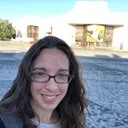Stay in the Loop
BSR publishes on a weekly schedule, with an email newsletter every Wednesday and Thursday morning. There’s no paywall, and subscribing is always free.
Such devoted sisters
Don’t Say We Didn’t Warn You by Ariel Delgado Dixon

Leo Tolstoy famously said, “Happy families are all alike; every unhappy family is unhappy in its own way.” For the two sisters at the center of Philadelphia author Ariel Delgado Dixon’s debut novel, Don’t Say We Didn’t Warn You, family and connection are a source of desire and distrust. As adults, the sisters seek out love and stability, but inexorably sabotage their chances—and the people who give it to them.
The novel’s unnamed narrator and her younger sister Fawn grow up in Deerie, a small town outside of New York City, where they rattle around a warehouse their parents planned on turning into an artists’ commune. But early on, their father abandons them and their mother steals into the city any chance she gets, sometimes departing for weeks at a time. Left to their own devices, the girls seek solace and outlets in transgressive and dangerous ways.
In her early 20s, the narrator returns to the warehouse when she becomes romantically involved with Rochelle, the older woman who now owns it. When Fawn resurfaces under another name, she threatens to destroy the delicate semblance of a life her older sister has constructed.
Trauma comes home
The novel jumps back and forth between their adulthood, childhood, and the narrator’s time at the Veld Center, a wilderness program and rehabilitation center for teenage girls. But the center only causes more damage: teenagers die of exposure on hikes, counselors prey on students, and the girls are ruthless and mercenary.
Dixon explores how trauma can seep into a family and be carried down generations, starting with colonialism. The girls’ father grew up fending for himself as an orphan in Vieques, Puerto Rico, the site of a US military bombing. This experience becomes source material for his band, Playa Mala (“Bad Beach”) and their one album, Vieques, but also fosters in him an inability to connect to others. “I only ever learned to live for one,” he tells the narrator. “No one looking after me, no one pointing me in the right direction.”
Meanwhile their mother, who comes from a background of economic privilege, chooses wanderlust and impermanence, whether it is hitchhiking across the country as a teenager in the early 1970s where she encounters danger and assault, a carefree artist’s life, or a series of transactional relationships. When the consequences of these choices catch up with her, she must choose her daughters or solidity.
Unsentimental and inescapable
The book’s most enduring and complex relationship is between the sisters. Fawn is charismatic, clever, manipulative, and dangerous, with a solipsism that verges on sociopathy (as a child she wonders why “everyone went on and on after someone died … Didn’t they get tired of acting like they were sad?”). Like the narrator, she constructs a series of identities for survival, but she revels in the chaos, using her skills as a performer to become an actor. However, her destructive reactions to disappointment and betrayal may disguise a deeper hurt.
Far from leaning into the maudlin or the tragic, Dixon captures the family’s peripatetic life and history in cool, understated, unsentimental prose. She leavens episodes of brutality with a sense of surreal, disorienting oddness—including a series of severed body parts that find their way into Deerie when the girls are young, and other accidental injuries or fatalities for which the sisters may or may not be directly or indirectly responsible.
Intriguingly subtle and destabilizing, Don’t Say We Didn’t Warn You says that family, unhappy or not, is inescapable.
What, When, Where
Don’t Say We Didn’t Warn You. By Ariel Delgado Dixon. New York: Random House, February 15, 2022. 320 pages; hardcover; $27. Get it on bookshop.org.
On Tuesday, February 22, 2022, the Free Library and Blue Stoop will present an in-person conversation between Ariel Delgado Dixon and fellow Philadelphia author Sara Nović. Register online through the Free Library.
Sign up for our newsletter
All of the week's new articles, all in one place. Sign up for the free weekly BSR newsletters, and don't miss a conversation.

 Kirsten Bowen
Kirsten Bowen